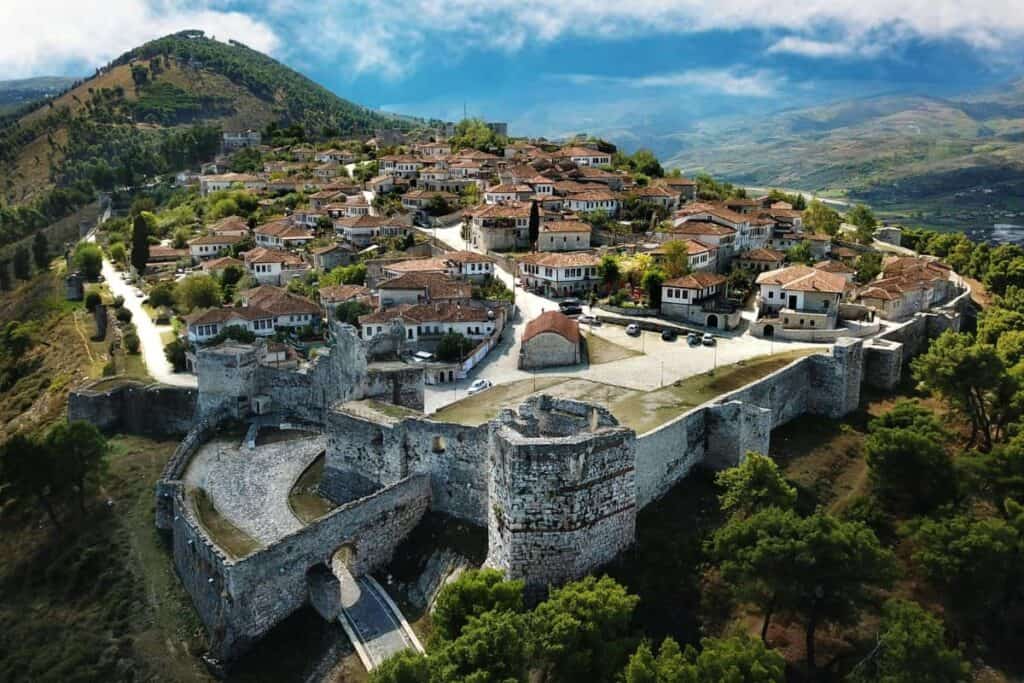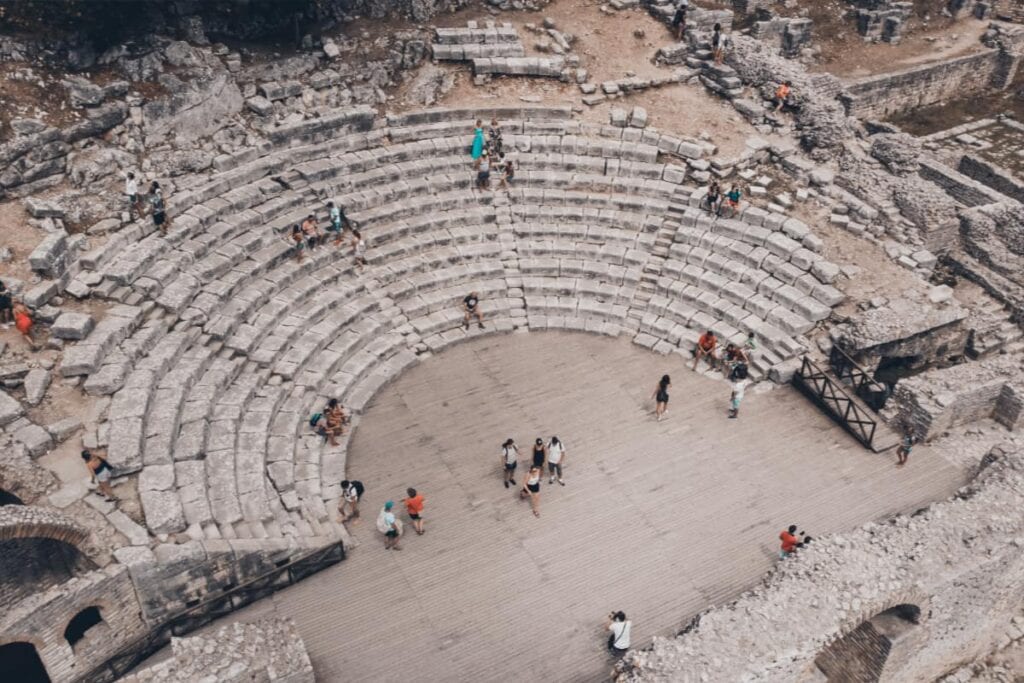Delving into the Traditions of Central Albania
Central Albania is not only the heart of the country geographically but also culturally. Its traditions are a blend of history, religion, and local customs, offering a vibrant tapestry that reflects the diversity and resilience of its people. From age-old festivals to culinary rituals, exploring these traditions provides a deeper connection to the region.
1. Dita e Verës: Albania’s Summer Day Festival
Dita e Verës is one of Albania’s most cherished traditions, celebrated on March 14 to welcome the arrival of spring.
How It’s Celebrated:
- Families gather to enjoy traditional foods like ballokume (a cornflour cookie) and roasted lamb.
- Parades and outdoor activities are held in cities like Elbasan, the festival’s epicenter.
- Bonfires are lit as a symbol of renewal and good fortune.
Why It’s Special: The festival connects communities and reflects Albania’s ancient pagan roots.
Tip: Visit Elbasan during Dita e Verës for the most authentic experience.
2. Wedding Traditions in Central Albania
Weddings in Central Albania are elaborate events steeped in tradition.
Key Customs:
- Shkuesi: Matchmakers play an important role in arranging marriages.
- Traditional Music: Bands perform folk songs during the bride’s procession.
- Gifts and Dowries: These are exchanged between families, symbolizing respect and unity.
Why It’s Unique: Weddings are not just family affairs but community celebrations lasting several days.
Tip: If you’re invited to a wedding, bring a gift and be ready to join in the dancing!
3. The Ritual of Bread Baking
In Central Albania, bread is more than just a staple—it’s a symbol of hospitality and life.
What to Observe:
- Traditional ovens, known as çerep, are still used in rural areas.
- Bread is often blessed before being served during special occasions.
Why It’s Significant: Bread rituals reflect the deep respect for family and sustenance in Albanian culture.
Tip: Visit a family-run bakery to see traditional bread-making in action.
4. The Kanun in Modern Life
The Kanun of Lekë Dukagjini, an ancient code of laws, still influences some traditions in Central Albania.
What It Covers:
- Rules on hospitality, family honor, and property.
- Practices like besa, the sacred word of honor.
Why It’s Important: The Kanun offers a glimpse into the values and structure of Albanian society.
Tip: Learn about the Kanun at cultural centers or through guided tours in towns like Elbasan.
5. Religious Harmony in Central Albania
Central Albania exemplifies the country’s unique religious harmony, where Muslims, Christians, and Bektashis coexist peacefully.
Key Sites:
- Et’hem Bey Mosque in Tirana is a symbol of Islamic heritage.
- The Ardenica Monastery represents Orthodox Christianity.
- Bektashi tekke (shrines) near Elbasan and Berat.
Why It’s Inspiring: This tradition of tolerance reflects Albania’s commitment to unity and respect.
Tip: Visit during religious festivals like Bajram or Easter to witness celebrations.
6. Storytelling and Oral Traditions
In Central Albania, storytelling remains an integral part of family and community life.
What You’ll Hear:
- Legends of heroes like Skanderbeg and the Castle of Rozafa.
- Folktales are passed down through generations during family gatherings.
Why It’s Fascinating: These stories preserve history and convey moral lessons in an engaging way.
Tip: Attend cultural evenings or ask local elders to share their favorite tales.
7. Traditional Costumes of Central Albania
The region’s traditional attire showcases its artistic and cultural heritage.
Key Features:
- Women’s costumes were adorned with intricate embroidery and beadwork.
- Men’s woolen cloaks and qeleshe (traditional caps).
Why It’s Unique: Costumes are still worn during festivals, weddings, and other cultural events.
Tip: Visit ethnographic museums in Tirana or Berat to see these costumes up close.
8. Traditional Dances
Dance is a vibrant expression of culture in Central Albania, with performances often accompanied by folk music.
Popular Dances:
- Valle e Shqiponjës: A group dance symbolizing unity and strength.
- Valle e Devollit: Known for its fast-paced steps and joyful rhythm.
Why It’s Special: These dances are passed down through generations and performed at almost every celebration.
Tip: Join a local event or festival to learn the steps and participate.
9. The Importance of Coffee Culture
Coffee is more than just a beverage in Central Albania—it’s a social ritual.
What to Observe:
- Traditional Turkish coffee, served in small cups with a side of conversation.
- Cafes in cities like Tirana and Elbasan as hubs of social interaction.
Why It’s Cultural: Coffee gatherings are a way to strengthen relationships and discuss important matters.
Tip: Take your time when enjoying coffee—it’s meant to be savored, not rushed.
Tips for Experiencing Traditions in Central Albania
- Engage Locally: Participate in festivals or join families for traditional meals.
- Learn the Stories: Ask locals about the meaning behind their customs and practices.
- Be Respectful: Show appreciation for traditions by dressing appropriately and following local etiquette.


